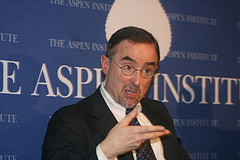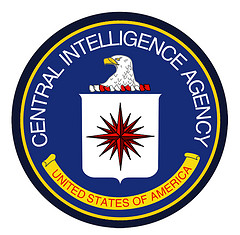
Photo (cc) 2019 by Andreas Komodromos
In what should be a surprise to no one, follow-ups show that The New York Times fired freelance editor Lauren Wolfe after several previous incidents in which the paper’s editors believed she had violated social-media guidelines. It wasn’t just the “I have chills” tweet about President Biden. But the question remains: What was the big deal? As Joe Pompeo of Vanity Fair puts it:
As the situation snowballed, there was also a palpable yearning for more information about what was behind the Times’ decision. Was Wolfe a sacrificial lamb thrown overboard in the face of bad faith criticism? Had the Times overreacted to what could be interpreted as an expression of relief given the authoritarian bullet America just dodged? Or was there more to the story?
The answer, Pompeo says, citing “a number of senior Times sources”: “Wolfe had previously been cautioned about her social media behavior. A manager gave her a warning months ago after staffers expressed discomfort with certain tweets she was told bordered on being political.”
Tom Jones of Poynter argues that Wolfe’s termination raises questions that need further exploration:
This incident once again brings into question the social media presence of journalists. When a journalist tweets, do they represent just themselves or the organization they work for, as well? Can someone’s work be questioned over something they post on Facebook? Is a journalist always “on the clock,” even when they are tweeting personal thoughts?
Finally, Wolfe herself speaks to Erik Wemple of The Washington Post. And what she has to say casts doubt on the idea that her previous transgressions played any role in her firing. Wemple writes:
Months ago, recalls Wolfe, she received a warning from the same manager about her Twitter activity; as an example, he cited a tweet in which, Wolfe says, she’d connected the resistance of conservative men to wearing masks to “toxic masculinity.” She deleted the tweet. But, according to Wolfe, the manager said her posts in general were “borderline” and that other Times staffers had done “worse.” Last week’s tweet was “the only reason they fired me,” Wolfe says.
Wemple also describes as “dreadful” the Times statement (see previous item) in which management said it would respect her privacy while not respecting her privacy. It surely is that. By insinuating that Wolfe was fired for something much worse than the “chills” tweet, the Times harmed Wolfe’s reputation and made it more difficult for her to move on to her next job.
The Times is known for having strict guidelines about its straight-news journalists expressing opinions on social media. If, in fact, Wolfe proved incorrigible after previous warnings, then I suppose the Times acted appropriately, even though it still strikes me as an extreme reaction to a pretty harmless tweet.
It also appears that Times management reacted as much to the outrage stirred up by the gadfly journalist Glenn Greenwald and others as it did to Wolfe’s actual tweet. According to Pompeo, Wolfe was told that her tweet had sparked an outcry, and “we can’t have that.” For what it’s worth, Greenwald says Wolfe shouldn’t have been fired.
Earlier:
Please consider becoming a paid member of Media Nation for just $5 a month. You’ll receive a weekly newsletter with exclusive content. Click here for details.








